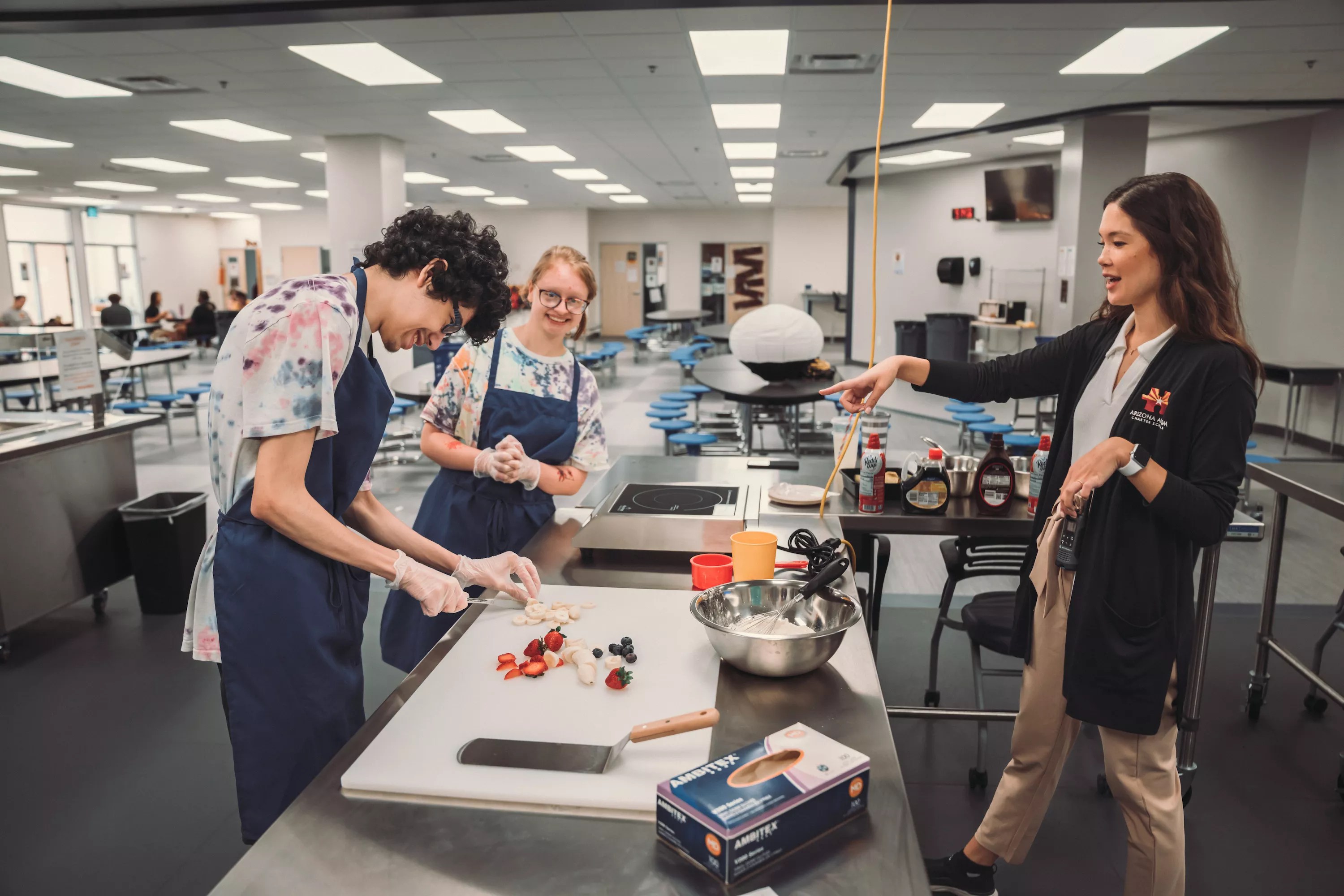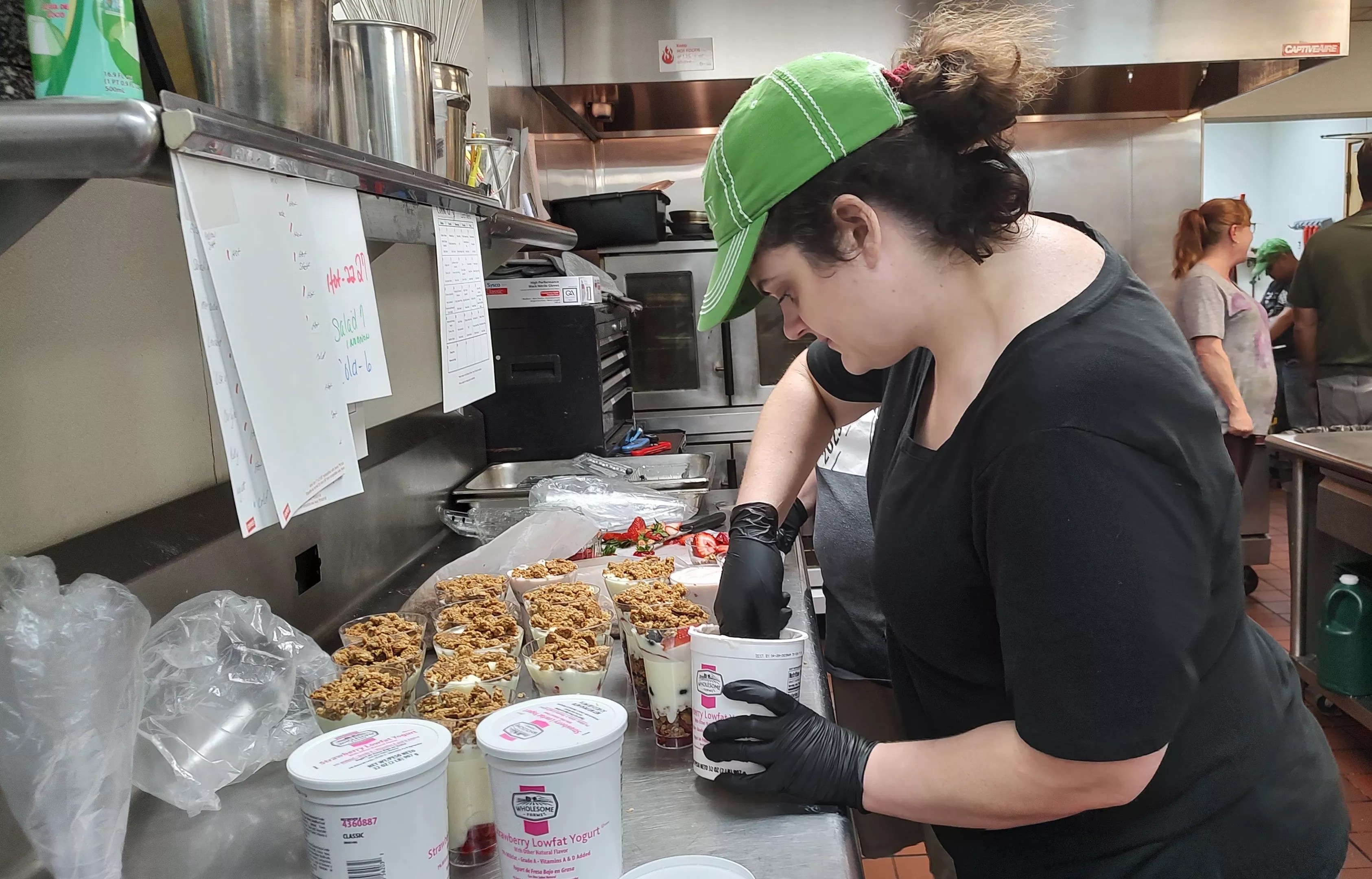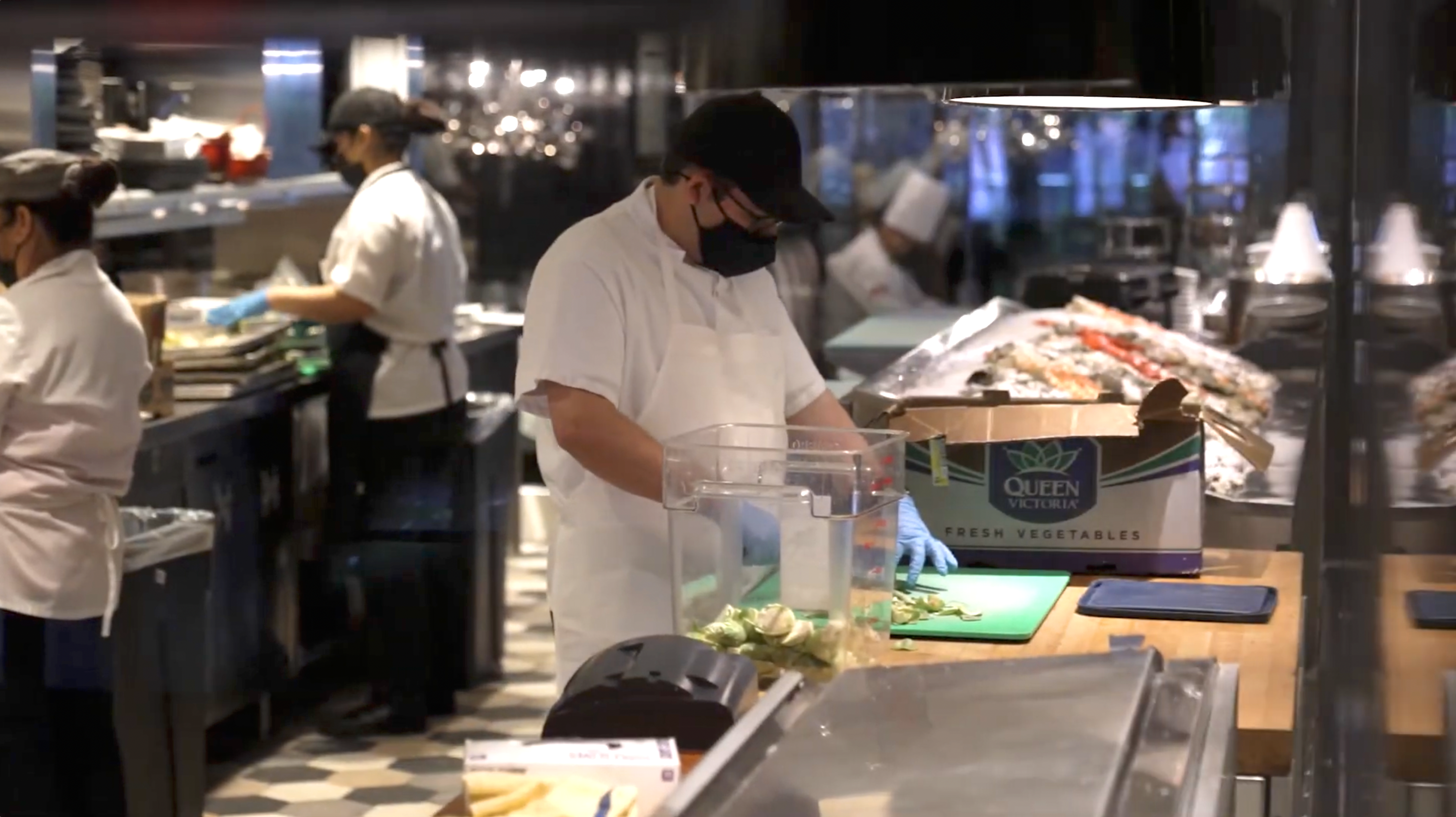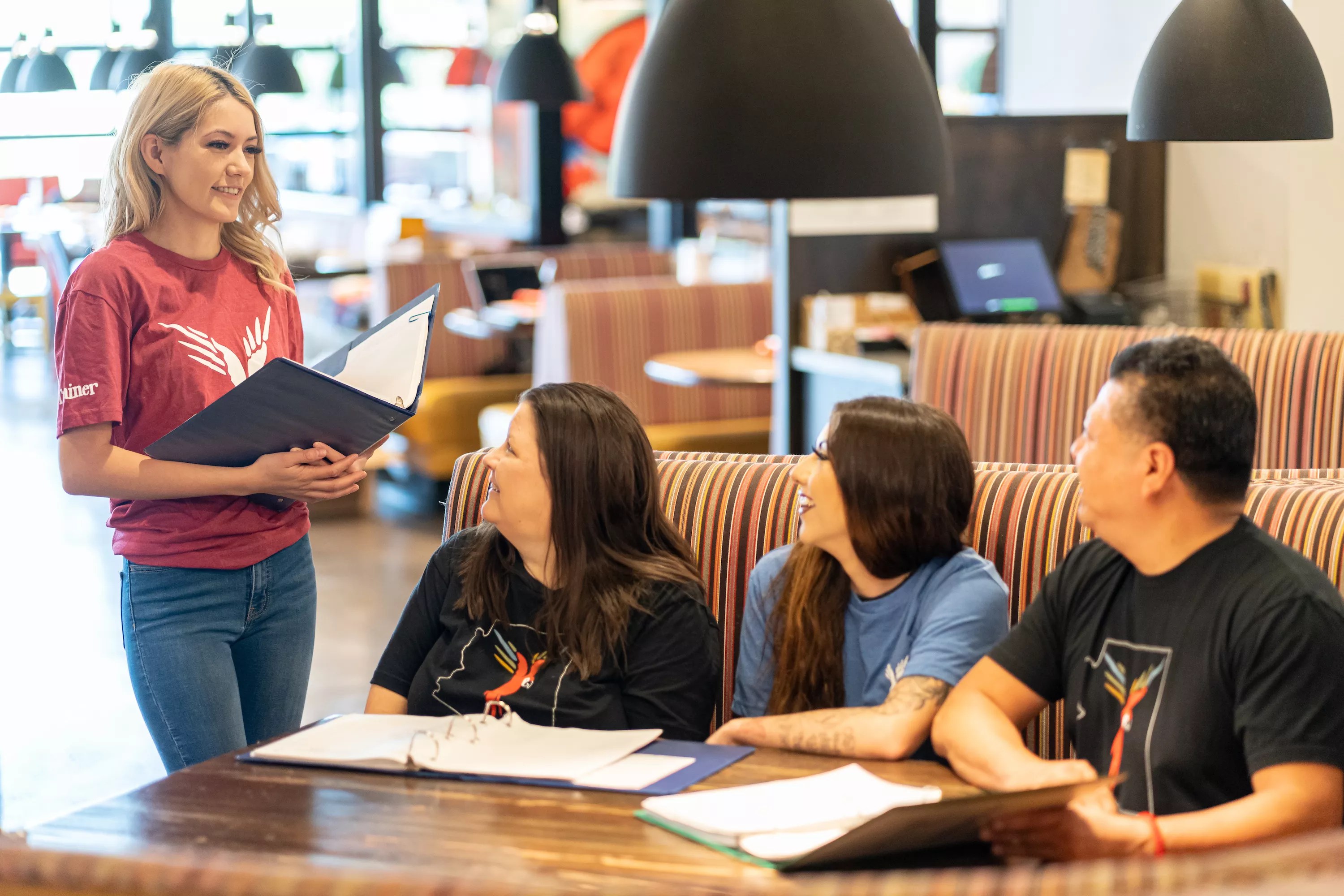
Arizona Autism Charter Schools

Audio By Carbonatix
In October 2020, Jonathan Sleiman got hired at Steak 44 in Scottsdale to do food preparation in the kitchen. For Sleiman, now 23, who has autism, it was a major accomplishment.
The Southwest Autism Research & Resource Center (SARRC) taught him general skills such as how to get along in the workplace, how to take instructions from others and how to interview. He landed the job and has blossomed.
“I do food prepping and I like peeling potatoes [and] bagging veggies,” Sleiman says. “I like the mushrooms and potatoes. Yesterday, they brought us doughnuts. They make us lunch on break. By the way, the people are good.”
Across the Valley, restaurants are becoming more accommodating to neurodivergent people in both hiring opportunities and providing an understanding atmosphere for guests.
It’s extremely difficult for those with autism to find jobs. According to the Thinking Person’s Guide to Autism (TPGA) and Market Watch, 85 percent of college-educated adults with autism are unemployed.
And it can be challenging for a family with a neurodivergent member to enjoy going out to eat. Those with autism often need a quiet room or area and require patience in the event of a meltdown, which is an intense response to an overwhelming situation. On both fronts, Phoenix area restaurants are doing more to be welcoming.

Civitan member Jessica prepares desserts in the commercial kitchen at Civitan Village as part of the organization’s culinary program, where members prepare, cook, bake and serve thousands of meals each year in the community.
Civitan Foundation, Inc.
People with autism can thrive in food service
Work training, including for jobs in the food industry, often starts with schools and agencies that support neurodivergent people.
Kati Sears, a culinary instructor at Arizona Autism Charter Schools, teaches kids to make food with little or no help and to serve each other in class. The students also learn social skills, adaptability and how to work under pressure.
“Some had never even [cooked] an egg before, so it’s been really awesome to see their growth and development over time,” Sears says. “Watching them go from never being in a kitchen to feeling fully safe using the oven has been incredible.”
The school also has a coffee shop on campus called Puzzle Press where older students make and sell coffee to teachers every Wednesday.
Teachers also work with students to find paths in the food industry that best fit their personalities.
“One girl currently works at a McDonalds in a custodial position and her goal is to use the skills she’s learned here to become a line cook,” Sears says.
The Civitan Foundation is another training resource for people with autism looking for employment. It has a culinary institute with a commercial kitchen called the Cook-er-y (it’s hyphenated to mimic a dictionary entry) where adults with developmental disabilities get real-world skills.
Members earn a sub-minimum wage at the Cook-er-y to start, but compensation goes up as they gain experience and skills. And some members each year move on to fully paid jobs in the community.
Veronica De Leon, the director of employment services at the Civitan Foundation says members help prepare burritos for north Phoenix restaurant 32 Shea, among other tasks.
“We do lunches for a couple of schools. We do a lot of catering events. They do the breakfast and lunches for everybody at Civitan,” she says.
Working provides people with autism rewards beyond income.
“One of our members here, she was so scared of everything,” De Leon says. “She literally came here wearing gloves every single day and walking against the wall because she was scared of everything and everyone. She started working at the cafe and she’s just so radiant now.”
Working at Cook-er-y has given the woman a “sense of confidence and pride,” De Leon says.
Paige Raetz, the senior director of client experience at SARRC, says work provides a feeling of community and identity.
“When you don’t have that opportunity, you can feel isolated,” she says. In the reverse of national statistics, about 85 percent of SARRC’s clients eventually find employment.

Jonathan Sleiman, who has autism, works at Steak 44 doing food prep.
John Mullins
Businesses can benefit from hiring neurodivergent employees
In addition to agencies and schools providing vocational training, sometimes individual restaurants or restaurant groups take the initiative in hiring and training neurodivergent employees.
Oliver Badgio, chief brand officer for Prime Steak Concepts, had a personal connection with Jonathan Sleiman’s father, Rudy Sleiman, that led to his hiring at Steak 44. But the company’s co-founder and CEO, Jeff Mastro, was enthusiastic from the get-go and helped create a training program to hire more people with autism throughout the company, according to Badgio.
“They have such a wonderful demeanor and an energy about them,” Badgio says. “Their spirit’s contagious and the staff just wants to be around them. It improves our culture tremendously.”
Badgio encourages other restaurant owners to follow suit.
“It’s a fantastic opportunity to make our business more inclusive to so many people that have amazing talents,” he says. “Not only do they get a wonderful benefit from it, but as a company, we gain an amazing staff member to our team.”
Raetz says there’s a myth that it’s expensive to hire and support neurodivergent workers. In fact, she states, there’s no increased cost to businesses.
State funding through Arizona’s Division of Developmental Disabilities vocational rehabilitation program pays for on-site job coaches through organizations like SARRC and Scottsdale Training & Rehabilitation Services (STARS), the latter of which provides Jonathan Sleiman’s coach. These coaches shadow and observe clients as they work, chronicle their progress and milestones and note challenges that can be addressed.
De Leon of the Civitan Foundation says the food industry “has been a leader in inclusive employment,” but she hopes to open even more doors by spreading the word that people with autism generally already receive health care benefits through the state and have lower onboarding costs and higher retention rates. They also call out sick less and employers get a tax benefit, she says.
“There’s a lot of upsides that employers are just not educated about yet,” De Leon says.
Raetz also notes that when a workplace supports neurodivergent people, others benefit. For example, a restaurant might post visual instructions in a kitchen instead of handing out a manual. This can help all employees become more efficient.
“Every business is better when they have multiple voices and multiple perspectives,” Raetz adds. “By having that voice at that table and having that different perspective, you’re able to understand your community better as well.”

Kind Hospitality employees, including those at all Macayo’s locations, go through training to make dining out a pleasant experience for those with autism.
Trauscht Media, LLC
Restaurants seek certification to be accommodating
Some restaurants train front-of-house staff to make the dining experience more enjoyable for those with autism and their families.
Kind Hospitality licenses, franchises or owns 32 restaurant locations – many of them in airports – that are Certified Autism Centers through the International Board of Credentialing and Continuing Education Standards (IBCCES). It pays for all employees to take the certification course, for which the cost varies depending on the size of the business and other factors, according to Nava Singham, CEO and founder of Kind Hospitality. Its brands include locations of Macayo’s Mexican Food, Native Grill & Wings and Panera Bread.
Often, it’s not that hard to make a visit more comfortable. For example, Singham says, “The hosts and managers know not to seat somebody [with autism] right in the heavy traffic areas; to give them an area that doesn’t stimulate their world.” And if a situation arises, employees are trained to be calm and patient “without stirring up additional emotions,” he adds.
Singham says the impetus for pursuing the certification came from his sister, Nirmala Thuraisingam, a teacher and daycare owner who has worked with students with autism for 24 years. Recently, she met with a previous student for a social visit at a restaurant and was delighted that the server was patient, let her former student take his time ordering and delivered the food exactly as he requested.
“This student of mine couldn’t have his eggs and hash browns put on the same plate,” she says. Others may have different triggers, such as not being able to sit near a blowing fan.
“If you have the knowledge, you can identify customers who are on the spectrum and you can support them to enjoy dining out,” Thuraisingam says.
Visit Mesa, the marketing organization for the East Valley city, has been a leader in making sure people with autism have a good time at many of its member restaurants and elsewhere. The organization has a tab on its website for “autism travel.”
The group works to get partner businesses certified by the IBCCES and was the catalyst for Mesa becoming the first autism-certified city in the U.S. in 2019. Its fire, police, parks and other departments participate as well.
“Over 80 percent of families who have someone on the spectrum do not travel,” says Alison Brooks, the vice president of destination experience and advocacy for Visit Mesa. Getting the certification “provides this empathy that you may never have even considered,” she notes. “When you are traveling, you’re taking this child out of their normal day-to-day routine.”
In fact, that’s how Visit Mesa started the program. Its president and CEO, Marc Garcia, has a child with autism and had an unhappy experience with a hospitality professional while on a trip. Any kind of disruption can cause meltdowns among those with autism which can be jarring – not only for fellow patrons but also for employees who don’t understand or aren’t prepared, says Brooks.
When servers have been certified through IBCCES, families “can be confident that these trained individuals might pause and say, ‘Can I help you with something?’ and not give unsolicited advice or a judgmental stare,” Brooks says. “The interaction is so much improved.”